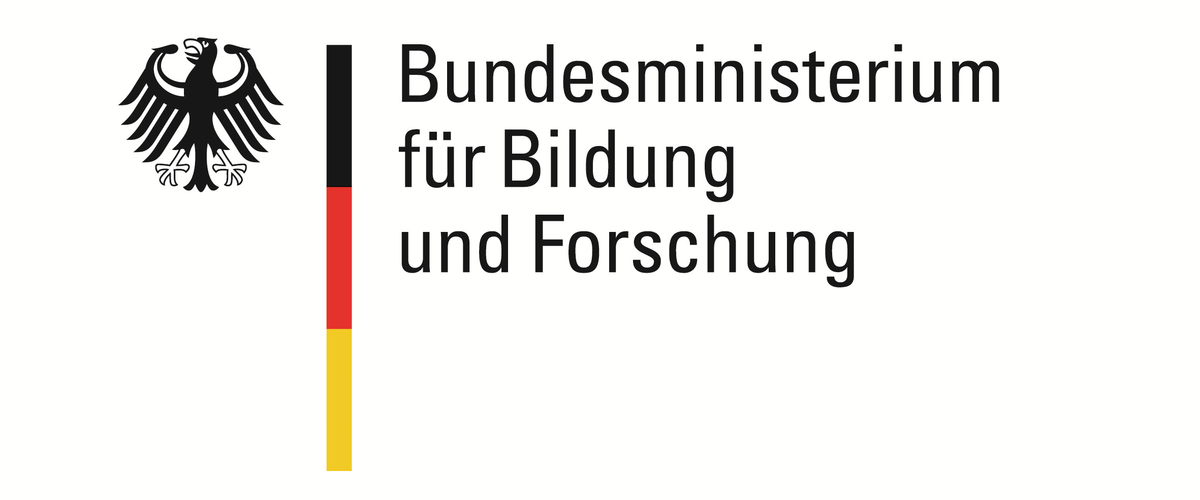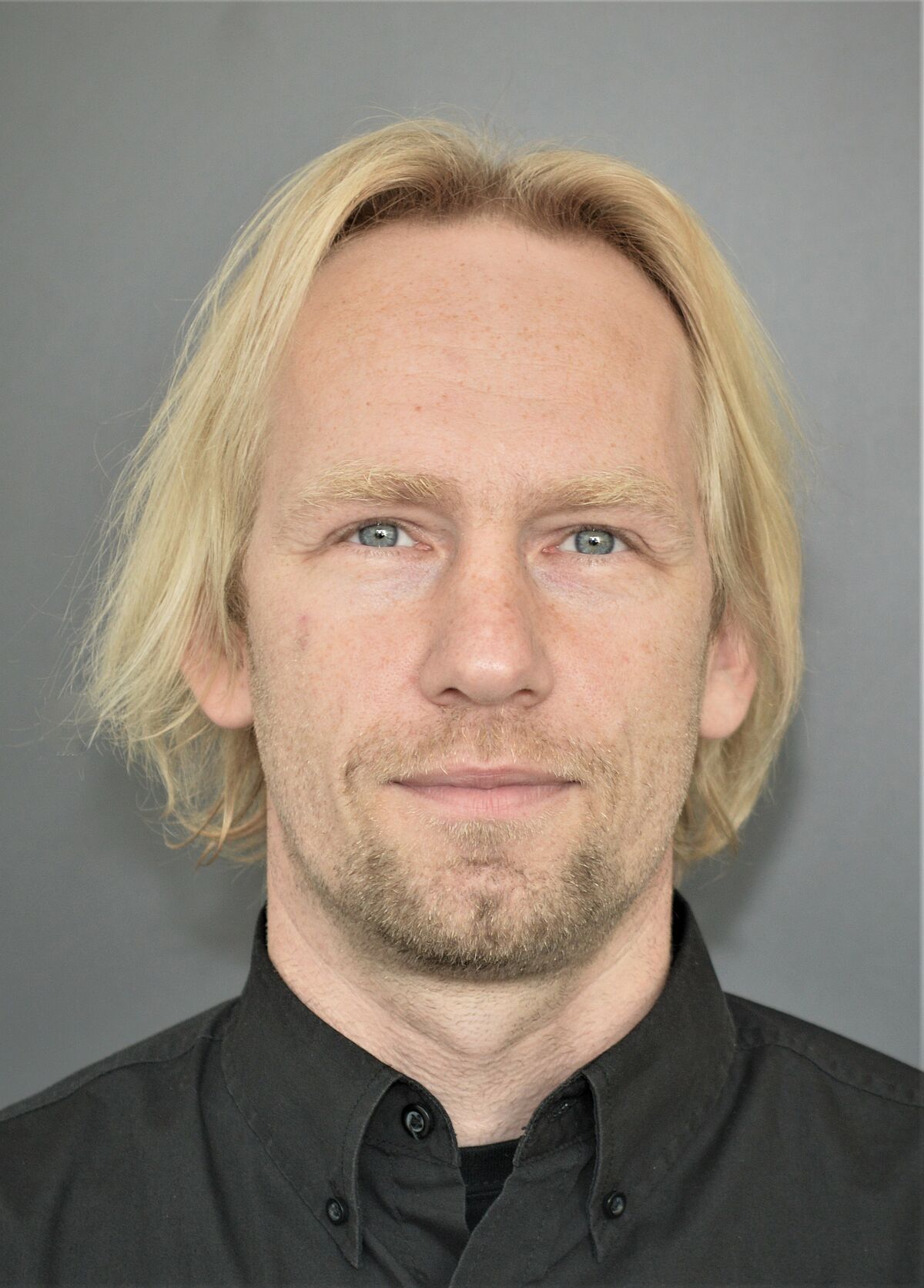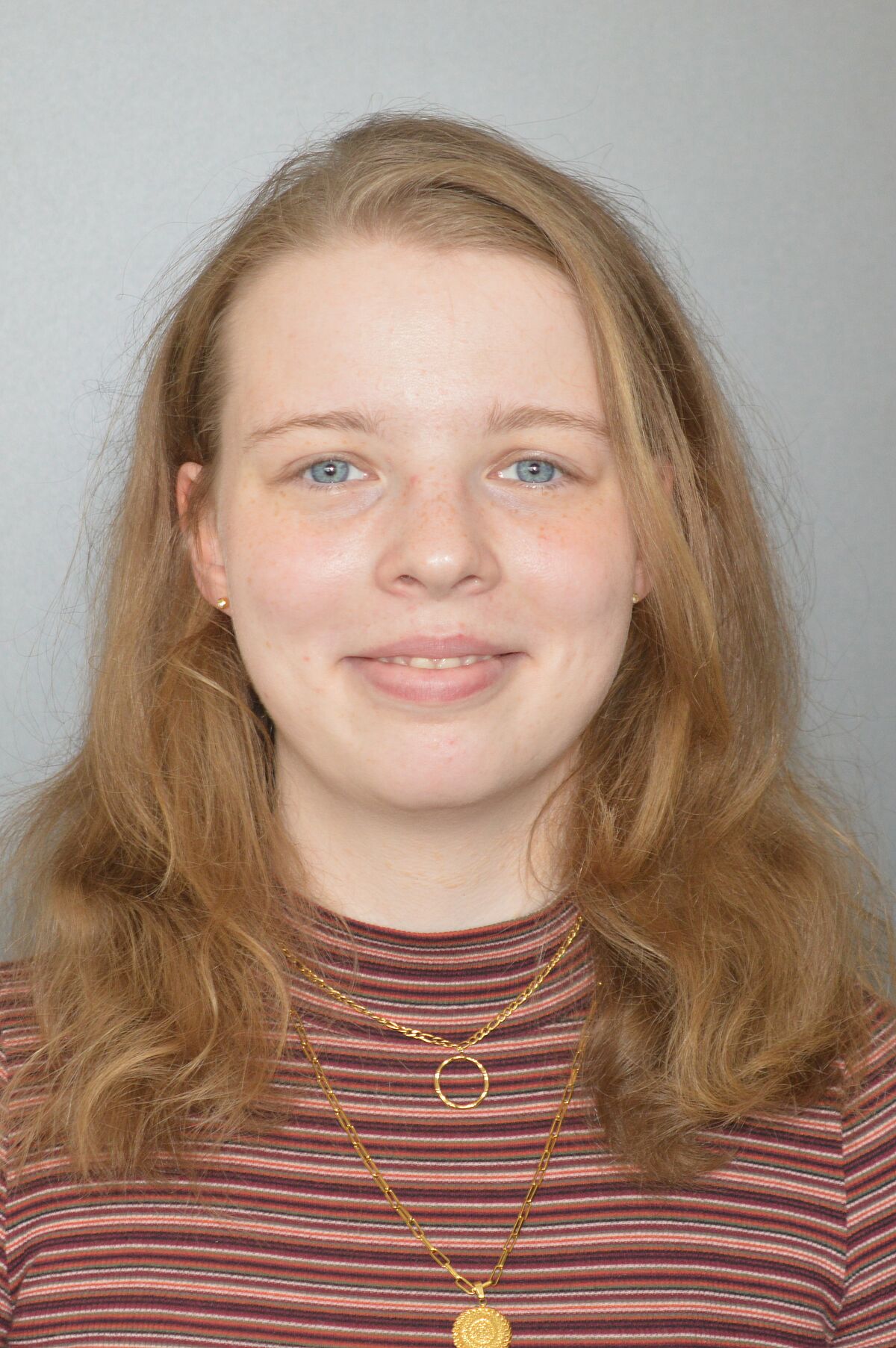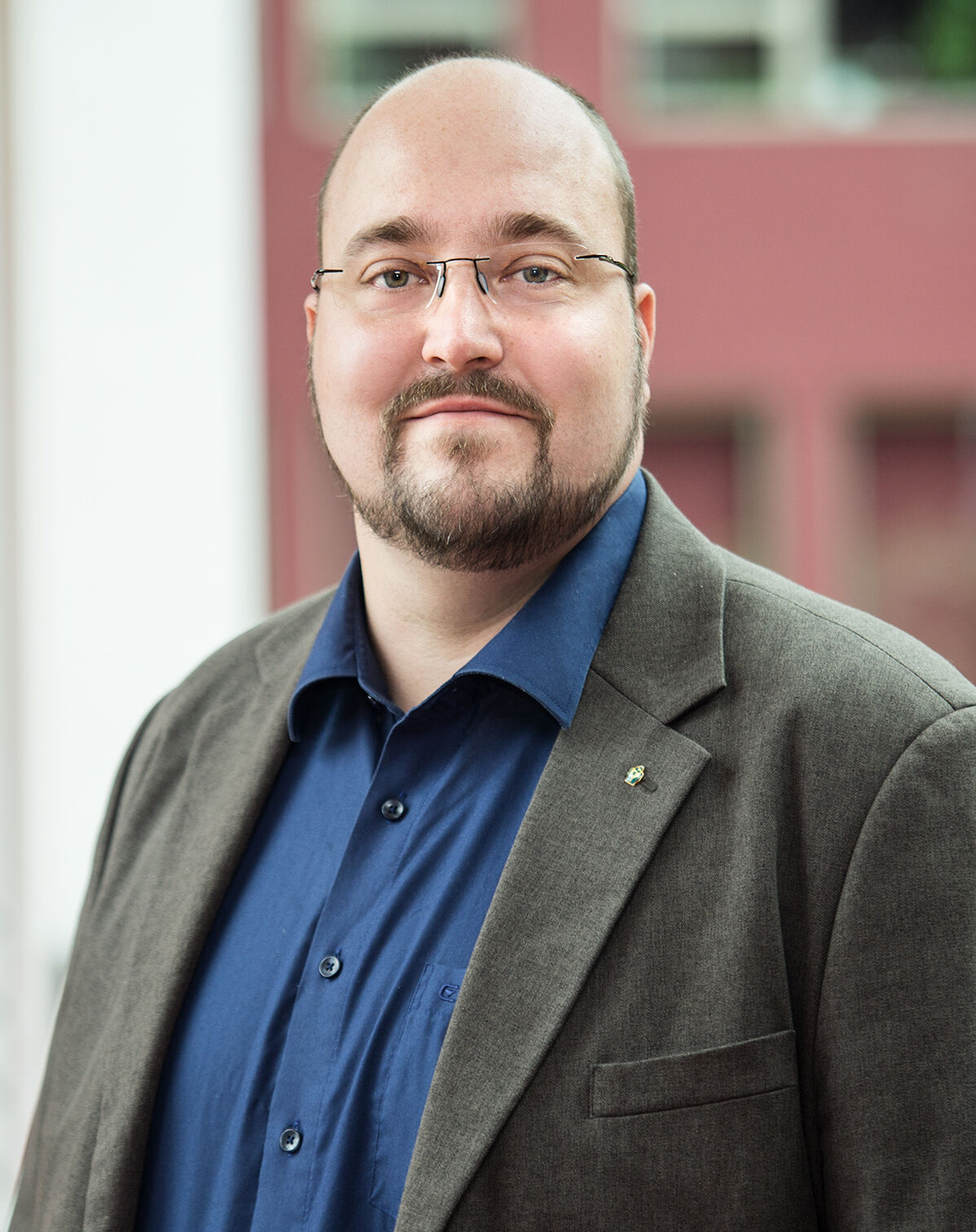HazarDust
Real-time detection of Hazardous Dust particles to identify security-relevant content from shipments and baggage
Motivation
Growing mobility, globalized world trade, and the rapidly increasing online shipping poses enormous technological and logistical challenges for the detection of hazardous substances in goods transport, baggage handling, and transit. In addition to the threat of explosives, in recent years, e.g., the illegal transportation of synthetic opioids increased in the wake of the so-called “opioid crisis.” These substances, especially fentanyl and its derivatives, are synthesized and transported as powders. There is a particular risk for employees of the fire brigade or the police, as well as for personnel who is checking goods or shipping through damaged packaging, which can lead to serious incidents, e.g., reported in the United States and Canada. The combination of the high toxicity of fentanyls and their derivatives with the exponential increase of the drugs on the black market requires new protective measures.
These safety-relevant substances (or illegal precursor products) also occur when shipping luggage, e.g. during baggage handling at the airport. While most of the target substances are not very volatile for detection in the gas phase or are present in particulate form, the detection of adhering or released residues and dust is in principle possible using aerosol particle analysis techniques. Particularly promising for this is single particle mass spectrometry (SPMS), a method that has so far only been used in research on aerosol particles from combustion emissions and in the atmosphere, which provides a chemical signature of individual microscopic particles in real-time. Recently developed, new ionization methods for SPMS allow a greatly improved detection of organic compounds. The approach of single-particle analysis enables extremely high sensitivity, which makes even the smallest amounts of material that are whirled up detectable.
Aim of the project
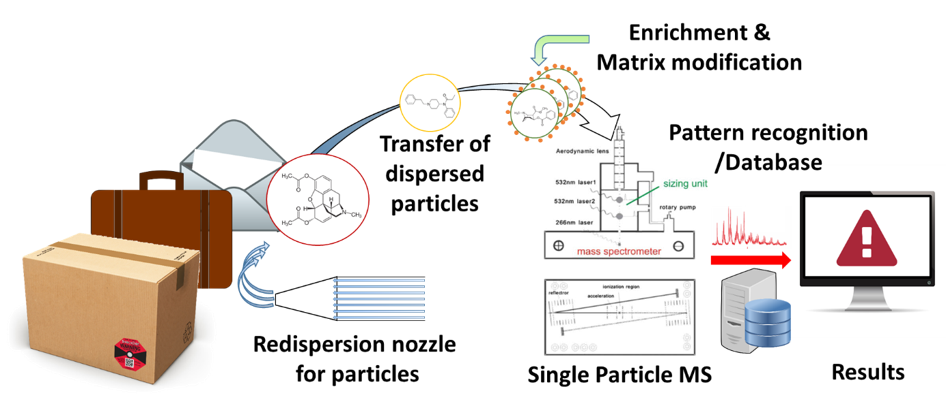
In the context of the present project, this research method for the fast and reliable detection of synthetic opioids, narcotics, as well as their pre- and preprecursors, but also other low-volatility hazardous substances in baggage/shipping security checks will be applied and further developed. For sample preparation, aerodynamic devices are set up to whirl up and concentrate the particles. Various laser ionization processes for SPMS, some of which have only recently been developed, are tested and optimized on simulants, pure substances, and real samples and combined with known processes in order to obtain a large spectrum of detectable, safety-relevant substances. Pattern recognition algorithms or artificial neural networks, which are implemented in the application software, are used to recognize typical patterns in the mass spectra.
Finally, the developed SPMS technology and the verification systems will be tested under realistic conditions in the baggage security check of a regional airport and in a package distribution center
Consortium
- University Rostock,
- Photonion GmbH
- ParteQ GmbH
- Bundeskriminalamt (BKA)
This project is funded by the Bundesministerium für Bildung und Forschung (BMBF) as part of the "KMU-Innovativ" program.
Project realization at University Rostock
Dr. Johannes Passig
Universität Rostock
Institut für Chemie
Abteilung Analytische und Technische Chemie
Dr. Johannes Passig
Albert Einstein Straße 25
18059 Rostock
Tel: +49 (0) 381 498 - 8989
Ellen Iva Rosewig
Universität Rostock
Institut für Chemie
Abteilung für analytische Chemie
Ellen Iva Rosewig
Albert-Einstein-Straße 27
18059 Rostock
Tel.: +49 (0) 381 498 - 6533
Dr. Sven Ehlert
Universität Rostock
Institut für Chemie
Abteilung Analytische und Technische Chemie
Dr. Sven Ehlert
Albert-Einstein-Straße 27
18059 Rostock
Tel: +49 (0) 381 498 - 6532

